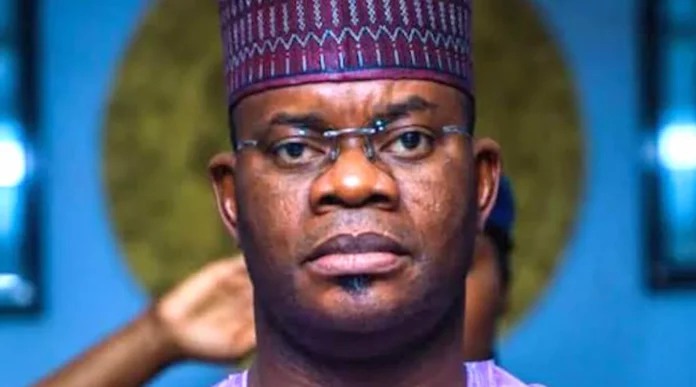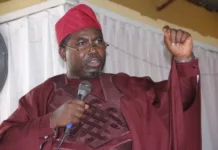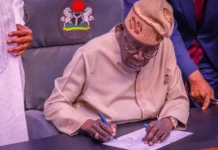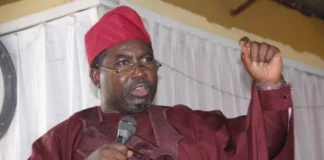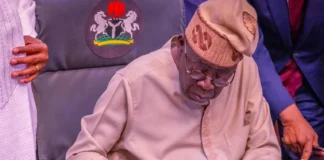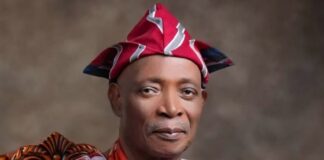N80.2b money laundering case: Yahaya Bello seeks transfer of fraud trial to Lokoja
The Chief Judge of the Federal High Court has directed the EFCC to respond to Bello’s request for the transfer of the case within six days
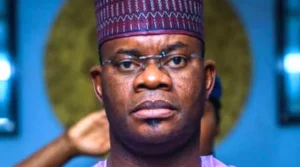
Yahaya Bello, the immediate past governor of Kogi state, has written to the Chief Judge of the Federal High Court, praying that Lokoja, the state capital, be made the venue of his trial on the N80.2b money laundering charge brought against him by the Economic and Financial Crimes Commission (EFCC)
Bello’s request is contained in a letter written for him by his lawyer, Abdulwahab Muhammed (SAN).
The ex-governor is arguing among others, that since he served as Kogi state governor and the funds he allegedly laundered belonged to the state, the capital of Kogi should serve as the proper venue for his trial.
Part of the letter reads: “We are counsel to the defendant (Bello) in the above subject case and on his behalf and express instructions we hereby apply for the transfer of the case from the Abuja judicial division of the Federal High Court, where it is pending presently, to the Lokoja division of the Federal High Court pursuant to the provisions of Section 45 of the Federal High Court (Establishment) Act.
“My lord, the proper court and venue for the trial of the instant case is not the Federal High Court, Abuja judicial division, where the case is currently pending, but the Federal High Court, Lokoja judicial division in Kogi State, where all the alleged offences of money laundering and misappropriation allegedly took place.
“My lord, the buying of property is not money laundering, it is the conversion and or transfer of funds from Kogi State Government’s bank accounts, which is a proceeding of the alleged unlawful act that is money laundering.
“Hence all the funds which the complainant alleged to have been laundered by the defendant are monies of the Government of Kogi State, whose state capital is in Lokoja.
“All the bank accounts, from which the said monies, are stated to be laundered, as shown in the proof of evidence, are domiciled with the branches of the respective banks in Lokoja, Kogi State.
“The institution of the proceedings in the Abuja division of the Federal High Court by the EFCC is forum shopping.
“The law is settled that generally, the Federal High Court’s jurisdiction is one all over the federation, the court is divided into judicial divisions and where a crime is committed in any of the divisions, criminal proceedings thereof must be initiated and prosecuted in that very judicial division of the Federal High Court where the act or omission or the elements of the offence were allegedly committed.
“It is pertinent to note that the defendant was the Governor of Kogi state, the charges and the proof of evidence indicate criminal breach of trust, criminal misappropriation, and money laundering in respect of the statutory funds of Kogi State.
“These are the alleged predicate offences and all their elements took place in Kogi State, within the territorial jurisdiction of the Federal High Court, Lokoja judicial division.
“We humbly urge my Lord, to transfer the subject charge to the Lokoja division of the Federal High Court which is the division with the territorial jurisdiction to try the case.”
The Chief Judge of the Federal High Court has directed the EFCC to respond to Bello’s request for the transfer of the case within six days.
The letter, dated June 14 from the Chief Judge’s office, addressed to EFCC’s lawyer, Rotimi Oyedepo (SAN) was signed by the Special Assistant to the Chief Judge, Joshua Ibrahim Aji.
It reads: “You will find attached the copy of a letter by counsel to the defendant on the above subject matter, dated 10th June 2024.
“I am directed by His Lordship, the Honourable, the Chief Judge, to forward the letter to you for your response within six days of receipt.”
Bello’s lawyer, Adekola Adedipe (SAN) referred to both letters when the case came up on Thursday got arraignment.
Adedipe had, when the case last came up on June 13 assured that Bello, who had consistently avoided court despite the issuance of a bench warrant for his arrest, would attend court on the next date.
The court had scheduled his arraignment for Thursday, with the belief that his lawyer would honour his words to produce Bello in court.
When the case was called, Adedipe said, in view of the letter written by his client and the directive by the Chief Judge for the lawyer to the EFCC to respond, the issue of Bello’s appearance in court would take the back seat.
He suggested that the court should await the outcome of the letter from his client.
Responding, the lawyer to the prosecution, Kemi Pinheiro (SAN) faulted Adedipe’s suggestion.
Pinheiro noted that the case was scheduled for arraignment based on the assurance by the defence lawyer to produce the defendant in court.
He added: “The letter to the Chief Judge of this court does not discharge the undertaking. It is not a judicial decision.”
Pinheiro argued that since Adedipe had defaulted in his undertaking by not producing his client as promised, the court should consider his action as professional misconduct and contempt of court.
He added that since the defendant was not produced despite the undertaking given by two senior advocates – Adedipe and Muhammed) to produce the defendant, he would apply that the two lawyers be cited for contempt.
Adedipe argued against Pinheiro’s submission and, at a point indicated his willingness to withdraw from the case.
He accused the prosecuting lawyer of trying to trade blames where none existed.
Adedipe denied giving any undertaking, but his claim was faulted when the judge read to court’s record and it became evident that he indeed it was based on his undertaking that the judge adjourned the case till June 27.
Justice Emeka Nwite subsequently adjourned till July 17 to rule on Pinheiro’s application that the two defence lawyer’s – Adedipe and Abdulwahab Muhammed – be cited for contempt and for the arraignment of Bello.

